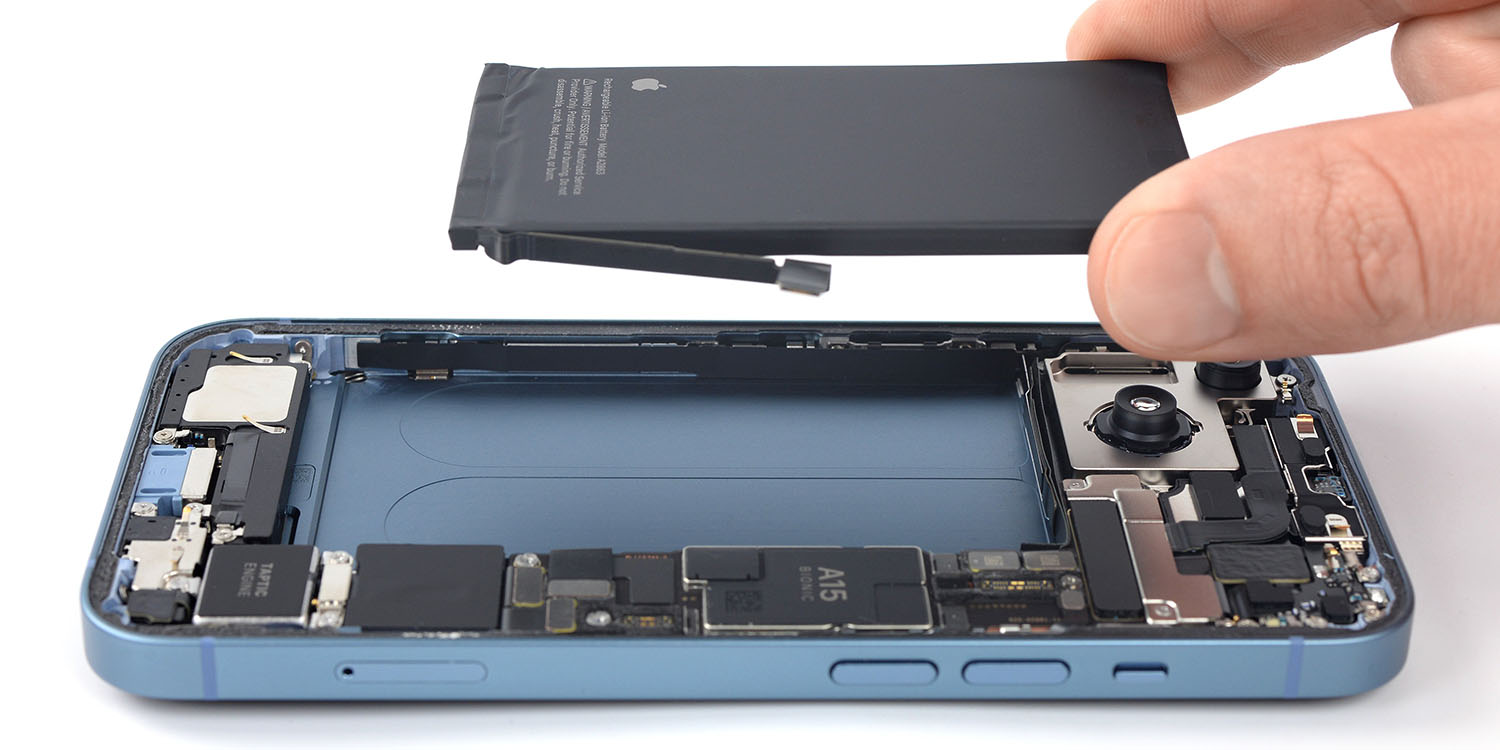
After mandatory USB-C ports, third-party app stores, access to the iPhone’s NFC chip, and more, Apple could be facing yet another European legal requirement – this one about battery replacement.
A proposed new law would require electronics companies like Apple to ensure that consumers are “easily” able to remove and replace batteries themselves …
Background
Apple has already come up against a number of European legal requirements, impacting the way it designs its products and runs its services.
One recent example is the mandatory use of USB-C ports for wired charging by 2024, in order to reduce electrical waste by allowing the same chargers to be used for all small consumer electronics devices. This comes into force in 2024, and Apple is expected to comply a year ahead of time by swapping out the Lightning port on iPhones for USB-C as of next year’s iPhone 15. iPads and MacBooks can already be charged by USB-C (though current MacBooks also offer a new MagSafe option).
Other examples include access to the iPhone’s NFC chip by third-party banking apps and third-party app stores.
Proposed battery replacement law
Another proposed European Union law spotted by PocketNow is to require manufacturers of electronic devices to allow consumers to “easily” carry out DIY battery replacement. Companies would get plenty of notice, however, as the requirement would only come into force 3.5 years after the legislation takes effect.
Three and a half years after the entry into force of the legislation, portable batteries in appliances must be designed so that consumers can easily remove and replace them themselves.
Companies will also be legally required to accept and recycle old batteries.
All waste LMT, EV, SLI and industrial batteries must be collected, free of charge for end-users, regardless of their nature, chemical composition, condition, brand or origin
As with the charger law, the intention is to reduce electrical waste.
To better inform consumers, batteries will carry labels and QR codes with information related to their capacity, performance, durability, chemical composition, as well as the “separate collection” symbol. […]
According to the deal, all economic operators placing batteries on the EU market, except for SMEs, will be required to develop and implement a so-called “due diligence policy”, consistent with international standards, to address the social and environmental risks linked to sourcing, processing and trading raw materials and secondary raw materials.
Specific collection and recycling targets are expected to be set.
- Collection targets are set at 45% by 2023, 63% by 2027 and 73% by 2030 for portable batteries, and at 51% by 2028 and 61% by 2031 for LMT batteries
- Minimum levels of recovered cobalt (16%), lead (85%), lithium (6%) and nickel (6%) from manufacturing and consumer waste must be reused in new batteries
Additionally, the European Commission – which proposes laws to the European Parliament – is expected to consider outlawing the use of non-rechargeable portable batteries. This more radical step would doubtless come with many exceptions, and there’s no plan to even fully consider this possibility before the end of the decade.
Apple likely to cite Self Service Repair program
If the law does come to pass, Apple is likely to argue that its Self Service Repair program would meet the requirements.
The company would need to expand the program to all 27 EU countries, as well as its complete product range, but Apple is already on the case with both geographic and product range expansions. Given the timeframe, full compliance would seem feasible – assuming the program is deemed to pass the “ease” requirement.
Photo: iFixit
FTC: We use income earning auto affiliate links. More.




Comments